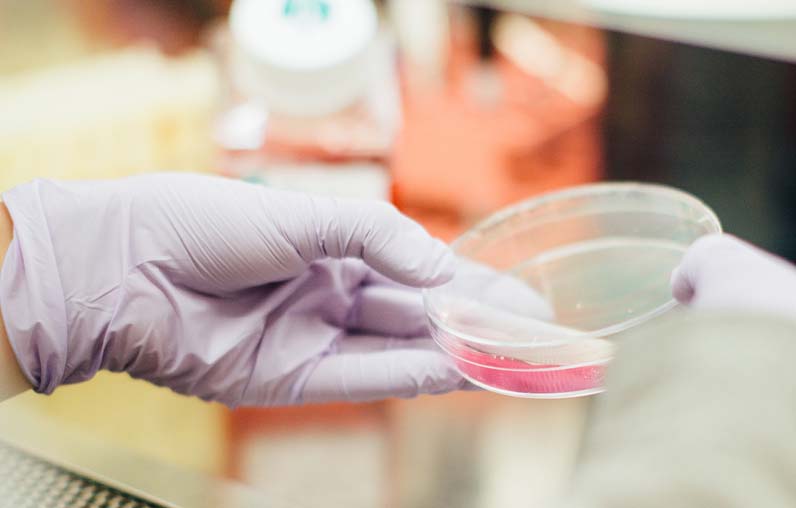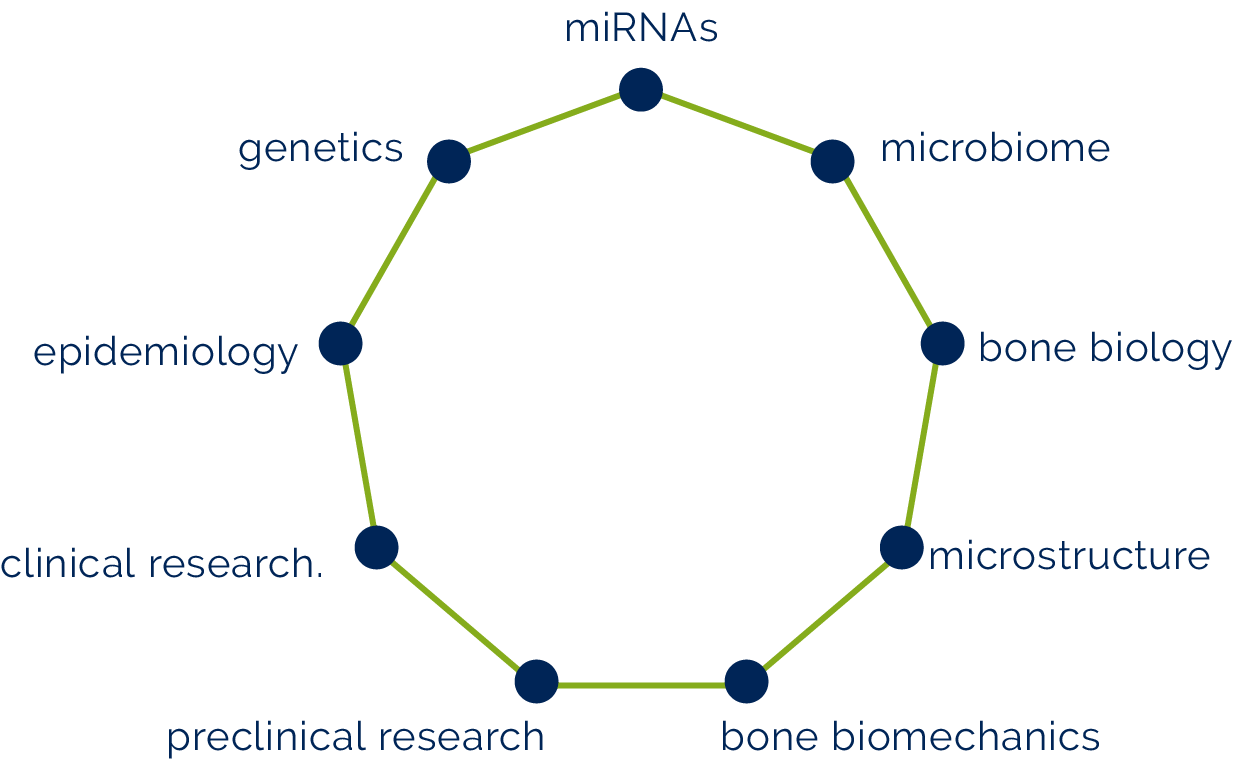Research
To prevent bones from breaking, they must be healthy and strong. The regulation of bone metabolism is influenced by hormones, mechanical stress, and genetic factors. Diabetes mellitus is a serious and wide-spread condition affecting the whole body. Well-known complications include the heart, the kidneys or the eyes. However, what has only recently been discovered is that diabetes mellitus also has serious adverse effects on bone metabolism, resulting in an increased fracture risk and poor healing.

Our ESRs will comprehensively unravel:

 the genetic and environmental mechanisms that contribute to bone fragility in diabetes
the genetic and environmental mechanisms that contribute to bone fragility in diabetes
 identify predictors and clinical markers for patient stratification
identify predictors and clinical markers for patient stratification
 decipher the underlying molecular mechanisms of bone fragility in diabetes
decipher the underlying molecular mechanisms of bone fragility in diabetes
 establish potential interventions through a personalised medicine approach
establish potential interventions through a personalised medicine approach
Training

To achieve a rapid and large-scale progress in research Fidelio brings together international leaders like bone biologists, clinicians, epidemiologists, geneticists, engineers and entrepreneurs, from academia and industry. These experts are ideally positioned to develop the proposed training programme and deliver a highly-trained workforce of next generation scientists, with the right mind-set, knowledge and skills, at the interface of Translational and Personalised Medicine. The Fidelio training programme is designed to addresses a translational gap that is currently a bottle-neck to advancing Precision Medicine.



